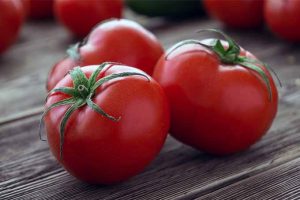Since 2007, Innovate UK has invested around £2.5bn to help businesses across the country to innovate, with match funding from industry taking the total value of projects above £4.3bn.
Innovate UK has helped 8,500 organisations create around 70,000 jobs and added an estimated £18bn of value to the UK economy. In the period 2019/2020, Innovate UK received 5,794 applications for grant funding and made 949 awards. £645,886 was awarded in terms of grant funding, 24% of the total amount applied for.
Nestec Limited Industry Sector: Food Technology
Nestec Limited applied to Innovate UK for grant funding for a collaborative R&D project with the University of Leeds, Mpc3 Limited and J and Jm Mcculloch Limited.
The project aim was to develop a machine for low cost, high throughput and continuous inline tempering of chocolate; the first such unit within this global industry.
The machine was stated to be able to save around 1.5 MJ of energy per kg of chocolate produced. Given that 600,000 tonnes of chocolate are eaten every year in the UK (10 kg per person per year), this would amount to a saving of nearly a Tera Joule (or a million million Joules) per annum.
Nestec Limited submitted that the impact would revolutionise chocolate processing. The unit has application beyond confectionery and foodstuffs and in all commercial scale chocolate processing sectors.
The project received £487,237 by way of funding.

Rsk Adas Limited Industry Sector: Food Packing
Rsk Adas Limited, the UK’s largest privately-owned multi-disciplinary environmental and agricultural consultancy, applied to Innovate UK for funding to support a collaborative R&D project.
With the funding, Rsk aimed to develop “Robo- Pack”, an advanced robotic manipulator for the inspection and packing of fresh produce, initially targeting tomatoes.
Rsk states that the packing of produce is normally carried out manually due to the need for intricate human handling and inspection skills. However, an increasing global population and a difficulty in attracting sufficient numbers of workers from within the current EU is a direct threat to affordable and secure supply for the UK.
In order to address this challenge, the agricultural and food manufacturing sectors are increasingly using technology to address the shortfall in labour availability. Robotic manipulation is the “”holy grail”” for fresh produce packing e.g. fruits and vegetables, which tend to be delicate objects with irregular shapes.
Unfortunately, robotic manipulator systems do not yet possess this capability. Current state-of-the-art systems essentially act open-loop, without the ability to successfully grasp an object if the mechanical interaction between the end-effector and the grasped object is not well predicted; such is the case with the handling of fresh produce. Robo-Pack aims to build upon proprietary tactile sensing and robot manipulation technology.
The project received £1,518,298 by way of funding.
Creo Medical Limited Industry Sector: Food safety
Creo Medical Limited applied to Innovate UK for grant funding to support feasibility studies into a project that seeks to improve the resilience and efficiency of the UK’s Food Supply Chain (FSC) by killing microbes present on fresh produce that if left unmanaged, would lead to spoilage.
The aim of the project is to increase the shelf life of produce, enabling these items to be held at distribution centres for longer – improving resilience of the food supply chain to sudden peaks of demand.
Managing spoiling organisms can be achieved using chemicals, but this is an unpopular approach with negative implications for the environment.
This project uses ‘cool’ plasma to safely manage spoilage organisms without leaving a chemical residue. Creo Medical has already developed the underlying cool plasma technology, which this project proposes to re-purpose for food applications.
The project has received £49,192 by way of funding.
To download a copy of these Food & Drink case studies, please click here.


